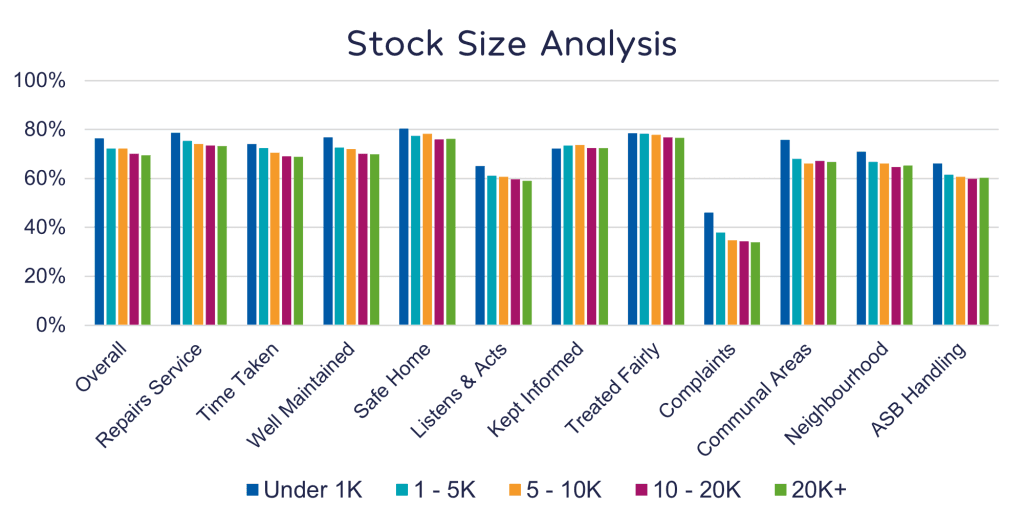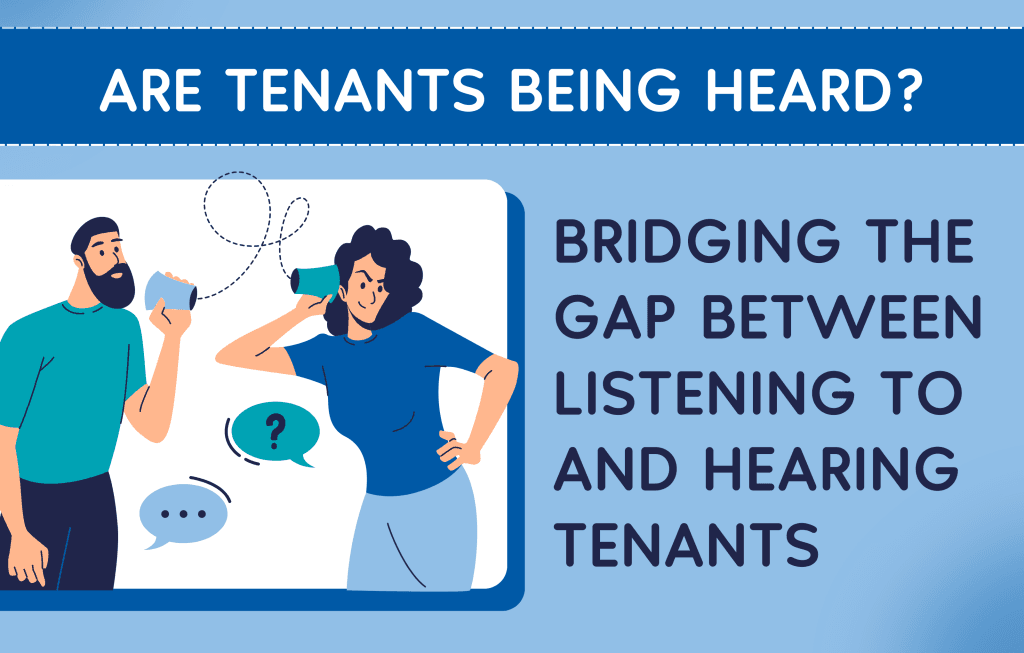Why is the housing sector still struggling to hear what tenants are really saying?
Despite a growing focus on tenant engagement, communication breakdowns remain a challenge across the sector (regardless of stock size). With trust and satisfaction levels under increasing scrutiny, the difference between landlords that are simply ticking boxes and those truly listening is becoming more visible and more important.
In this blog, our Head of Data and Analytics, Peter Stephenson, takes a closer look at the data to outline what’s going wrong and what the top performers tend to be getting right.
Are You Listening
I’m listening: That was the tag line of the late 90s comedy Frasier. Kelsey Grammer starred as psychiatrist Dr Frasier Crane, a radio talk show host who listened to people’s problems and used his wit and wisdom to try and give them guidance and support. So, the question is…are you listening?
At the recent Housing Community Summit, the question was asked: Is bigger better? In terms of communication, it doesn’t seem to be the case. Our research suggests that while smaller landlords tend to perform better on customer-facing measures, the sector as a whole is struggling with communication and really listening to its tenants.
Does Stock Size Matter
Analysis of over 200 landlords’ TSM scores by stock size shows that while smaller landlords perform better on 10 of 12 indicators, there are two clear outliers, which are being kept informed and how tenants are treated fairly and with respect. If you consider how the sector listens and acts (the lowest-scoring engagement question), along with complaints and ASB handling, a picture emerges that suggests how landlords listen and communicate with their tenants is a key area of concern, regardless of size.
While average overall satisfaction sits at 72.1% how tenants perceive landlords’ listening and acting is 11.0 percentage points lower at 61.1%. With the top performing landlords scoring slightly under 80% satisfied and those at the other end just under 60%, there is a 20 percentage point gap between the best and worst performers. So, what can landlords do?

What Are Good Practices?
Landlords who score well on the engagement indicators generally have the following things in common:- Clear Communication Strategy: They have a highly effective communication strategy, which includes messaging via emails, newsletters, quarterly magazines, their website, and notice boards. All tailored to fit a variety of audiences and lacking in jargon.
- Empowered Staff: Staff are empowered to go “above and beyond” to help tenants by being a single point of contact rather than being passed between departments.
- Tenant Insight: Messages are tailored based on personal preference, understanding that not everyone is going to read a newsletter or respond to a text.
- Tenant Voice: The knowledge their tenants possess is utilised, while it may be your property, it’s their HOME. Tenants are the experts in where they live, and they want to work in partnership, but may not know how.
- You Said/We Did: They promote themselves by not saying they are listening but demonstrating it in a very clear and concise way. Even small actions, like making TSM results easy to find on the website or explaining how the results will be used, can have a positive impact.
Final Thoughts
As the Consumer Standards Code of Practice sets out:
Registered providers should foster a strong culture throughout their organisation of fairness, courtesy and respect, where tenants are listened to and can trust their landlord. In treating tenants fairly, registered providers should consider how they can adapt their services and communications to meet individual tenants’ needs.
How and what landlords communicate to your tenants has never been more important, and the only way to know what tenants find important is to listen to what they have to say, put that into practice and communicate what you have done. By doing so, hopefully it will leave tenants better informed, feeling like they have been treated fairly and most importantly, giving them a voice about where and how they live.

